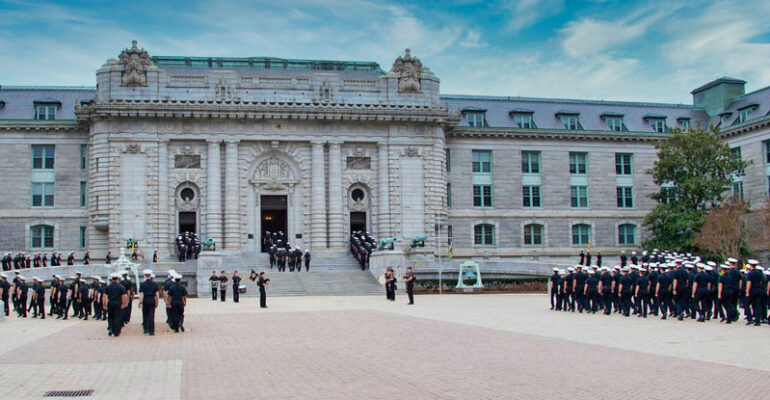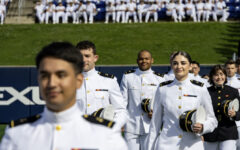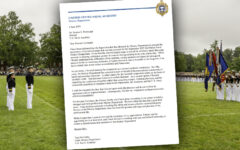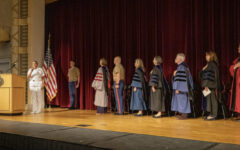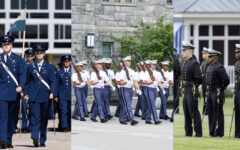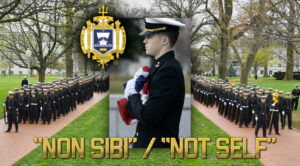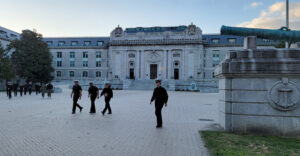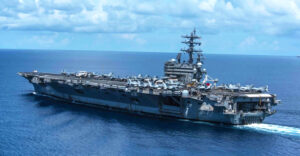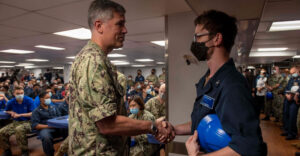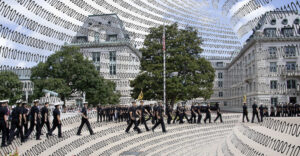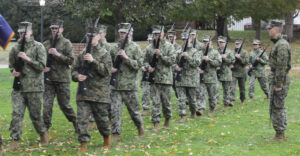Why is there a lack of ownership and responsibility among Navy Academy cadets?
22 August 2023 2024-04-13 20:21Why is there a lack of ownership and responsibility among Navy Academy cadets?
Indicative of low morale? If so, why do tomorrow’s leaders have low morale?
By Midshipman Second Class Jacob Schepmann
Midshipmen Must Treat Bancroft Hall Like Our Ship
One morning this summer, when I got back to my room in Bancroft Hall at the Naval Academy after an early uniform inspection, a mouse scurried across the floor. It ran to the other side of the room before disappearing into a crack in the baseboards.
Pondering how I would find a ride off the Yard to pick up some traps, I wiped a trickle of sweat from my forehead and made my way to the sink. Our room was balmy and damp, but my roommate, an electrical engineer, had figured out a way to trick the air conditioning to run.
Removing a plastic bottle from a makeshift holder on the wall, I filled it with hot water from the tap and placed it back over the thermostat. Sure enough, the ventilation kicked on and a breath of cool air began to seep into the room.
I grabbed my bags and went to the nearest head. When I opened the door, I was greeted with an overwhelming stench and a sheen of rank liquid covering the floor.
Such stories are common across the brigade of midshipmen here at the Naval Academy.
Bancroft Hall, while impressive from the outside, is a 100+-year old building. Midshipmen have complained of the spartan furnishings and cold atmosphere of the country’s largest dormitory for more than a century, but those grumblings are not what concern me today.
When I walk the Hall, I am troubled by the lack of ownership and responsibility the brigade takes for its living spaces.
I am worried about the culture of nonchalance my fellow future officers have toward proper cleanliness and maintenance.
If sailors treated a Navy ship like the brigade treats Bancroft Hall, it would not be ready for sea.
During my training cruise on board the destroyer USS Shoup (DDG-86) in Yokosuka, Japan, I was astonished by the pride the crew took in the appearance of their ship, from the most junior sailor to the commanding officer.
Every day, every division would turn out for 30 minutes to clean their own spaces and shared areas. Every hand wielded a broom, dustpan, or mop, and the results were apparent.
Even the sailors who grumbled were proud of their ship and the way that it was presented to guests.
This was a surprise to me as a midshipman because that kind of attitude and responsibility is not present at the Naval Academy.
While it may seem trivial, taking pride in personal and group appearance has long been a cornerstone of the Academy’s officer-creation process.
For nearly 170 years, room and zone inspections have been a vigorously enforced part of midshipmen life. Duty officers were often noted to have “a special faculty for looking just where you haven’t dusted” by deficient midshipmen.
The expectation in earlier days was to strive for perfection rather than mere sufficiency.
Instilling that expectation through the highly visible act of cleanliness was one ingredient that made midshipmen excellent officers, and it is one that is missing today. . . . . . (read more at US Naval Institute Proceedings)

